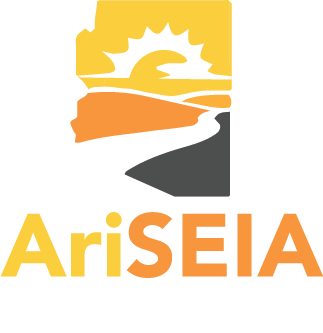|
Arizona Corporation Commission
1200 W. Washington Street Phoenix, AZ 85007 RE: Resource Comparison Proxy Proposal for Community Solar (RCP-CS) (Docket No. E-00000A-22-0103) & (Docket No. E-01345A-21-0240) Madam Chair, Commissioners, Commission Staff, and Interested Stakeholders, The signatories to this letter — a coalition of solar and storage industry partners, including developers, subscriber acquisition and management firms, and advocacy groups — appreciate the Commission and Staff conducting the working group meetings regarding the implementation of a community solar program in Arizona. We believe that a properly constructed community solar program will provide bill savings to electric utility customers, promote electric grid resiliency, and assist Arizona in its transition to clean energy. We are committed to providing information that will assist in the Commission’s consideration of a proposal for implementation and we look forward to continued participation and discussion in the working group sessions. At the working group meetings held on August 30 & 31, 2022, the signatories made a verbal proposal on the bill credit rate for the community solar program in Arizona. As requested by one of the Commissioner’s offices, the signatories are submitting this letter with the written details of that proposal. As background, the Commission previously approved the Resource Comparison Proxy (RCP) as the compensation mechanism for rooftop solar projects in Arizona. The signatories suggest that the Commission use the current RCP rate for Arizona Public Service (APS) as the initial bill credit rate for the community solar program with two required modifications, discussed herein and summarized in Appendix A. These modifications to the administration of the RCP are required because of the unique characteristics that community solar projects bring to customers and the grid in Arizona. Hereinafter, we refer to this proposal as RCP-CS. The RCP-CS proposal below is consistent with the Commission Order that initiated this proceeding. Specifically, the Order stated that the program should be “...designed to attract long-term private sector investment” and that “[d]irect bill offsets may be considered for subscribers to produce savings in a structure substantially similar to that offered to rooftop solar customers, eliminating the need for incentives. The value proposition for subscribers should be similar to those participating in onsite generation.” The Commission did not order that the bill credit rate mechanism for community solar should be exactly the same as the existing RCP, rather the value proposition should be “substantially similar.” As such, the RCP-CS proposal recognizes the fundamental dynamics of implementing a successful community solar program in Arizona while using the existing RCP as a starting point to simplify the initial bill credit setting process. The signatories offer the RCP-CS proposal below:
The study prepared by The Brattle Group and filed by the signatories on August 26, 2022 supports this RCP-CS proposal. The Brattle analysis suggests that the value of community solar is at least, if not higher than, the current value of APS’ RCP. The Brattle analysis found the value stack of community solar to be approximately $0.09683 per kWh (compared to APS’ current RCP of $0.08465 per kWh). Therefore, the Brattle study findings support the reasonableness of locking-in the bill credit rate at the current level of the RCP during the Stability Period. Further, the Brattle study supports the removal of the component of the existing RCP that allows rates to decline by a maximum of ten percent (10%) year over year because the study shows the value of community solar increasing in the future. The signatories propose that the RCP-CS rate include a Stability Period to allow critical time for the community solar program to be implemented successfully. The Stability Period is a necessary component of the proposal as it will take time for community solar projects to be constructed and for the Commission to gain experience with the community solar program. Several steps must take place before a community solar project is placed into service, including the following:
While some of the activities mentioned above can occur in parallel, some of them are sequential. The five-year Stability Period will allow critical time for projects to come online with reasonable commercial certainty and for the Commission to gain experience with the community solar program. The Stability Period will also allow for additional time to study the value stack of community solar projects to inform future bill credit rates. It is common in other community solar programs around the country to allow for program parameters that promote predictable program ramp-up through this type of approach. Attached as Appendix A is a table that compares the existing RCP with the proposed RCP-CS, including why the changes above are necessary for a community solar program. We appreciate the opportunity to address these important questions. We look forward to continuing to engage in the working group process to develop a successful community solar program in Arizona.
0 Comments
Leave a Reply. |
AriSEIA NewsKeep up with the latest solar energy news! Archives
July 2024
Categories
All
|
NEWS
See what AriSEIA is up to on the policy front.
The Arizona Solar Energy Industries Association (AriSEIA) is a 501(c)(6) non-profit trade association representing the solar, storage, and electrification industry, solar-friendly businesses, and others interested in advancing complementary technologies in Arizona. The group's focus is on education, professionalism and promotion of public policies that support deployment of solar, storage, and electrification technologies and renewable energy job growth and creation. |
FOLLOW Us |
Copyright © 2019 AriSEIA - All Rights Reserved

 RSS Feed
RSS Feed
